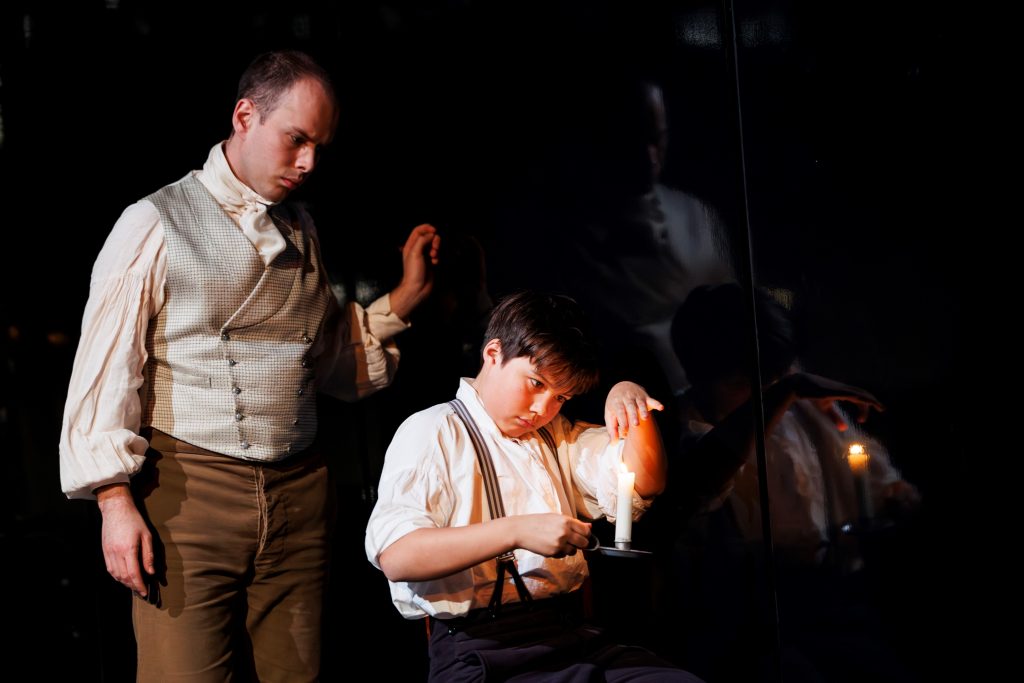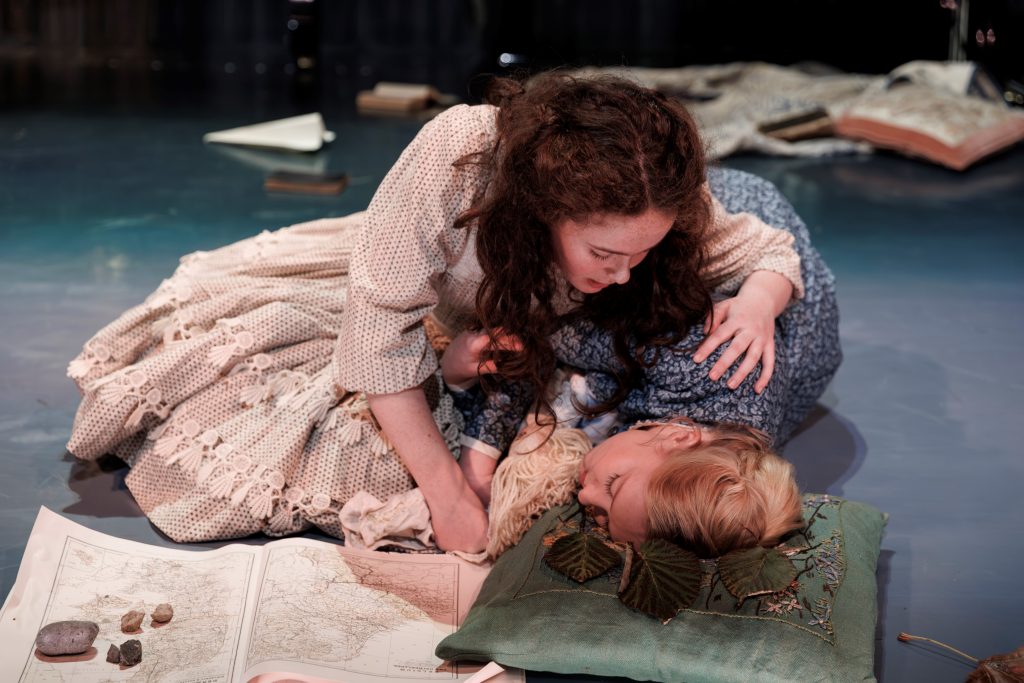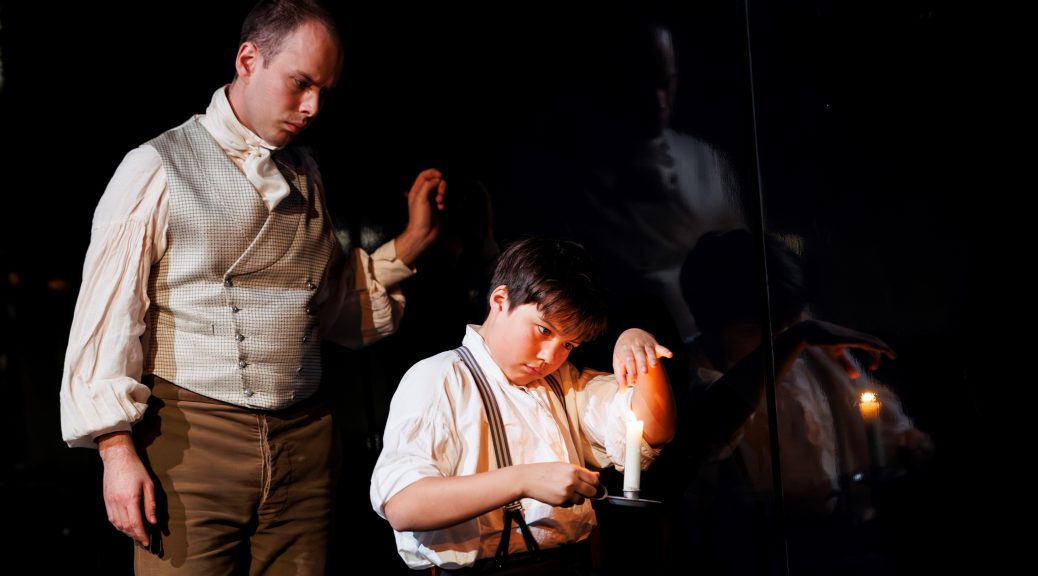
 (4 / 5)
(4 / 5)
Photo credit: Ellie Kurtz
It would be another train strike preventing me from getting to Bath for the press night of The Turn of the Screw. I’ve been thinking about their take on Machinal I saw on Halloween and through it all, I love coming back. In Benjamin Britten’s chamber opera, the Ustinov Stuido has it’s only second opera performed in it, after last year’s Dido and Aeneas.
It is staggering just how much of Britten’s operas are the abuse and lust of older men upon a younger male. Be it his masterpiece Peter Grimes, Billy Budd or Death in Venice (the latter we will see with Welsh National Opera in the spring), he latches on to these stories as if but an obsession. The composer’s own personal desires aside, he did have the genius to pick work so charged with depth and drama. This Henry James story was a suggestion of librettist Myfanwy Piper, who’s eloquent and piercing prose is a tremendous part of the opera. A borrowed line for the opera from W. B. Yeats seems to sum it all perfectly: “The ceremony of innocence is drowned”.
The Governess is assigned to be the main care giver for two orphans, in the country estate of Bly in east England. She meets Mrs. Grose with Miles and Flora, and settles in. Things are not what they seem as a sinister figure lurks the halls: Peter Quint. This man has abused young Miles and the prevoius governess Miss Jessel, who also appears in ghost form. Can the new Governess protect herself and the children away from this awful presence?
This stripped back arrangement sees two pianos, a celeste and a lone flute. I’d have loved to have heard the full ensemble, though the weight of the score lived in the duo pianos. Fascinating to listen to, I marvelled at the sour nursery rhymes, English folk like charms the feverish moments of anxiety, along with the aurora of the other realm. Directed by Isabelle Kettle, I think even more could have been done to add to the atmosphere, two worlds collide in a fight to claim the innocents as their own. A long transparent shower curtain appears to be the veil between both worlds, designer Charlotte Hennery should be praised for her accurate costume design. Some props are present, the children use the pianos as another fun device in their house. Even a dead crow (quite possibly a raven) is used in one scene. All very unnerving…

Photo credit: Ellie Kurtz
Xavier Hetherington is both the Prologue speaker (this could be the children’s father or even Henry James) and Quint. I don’t think enough was done to make him a seriously intimidating figure’, with a grip of power. In voice, Xavier had some beguiling moments, like the children we are won over by his light song. Sarah Gilford owned her role as the Governess. Her gradual decent into despair over losing the children to supernatural forces is traumatic and depressing. Really ringing in voice, never an easy role to tackle. I was quite smitten. Emma Bell as Mrs. Grose give heaps of back story over the awful goings on. I dont think I’ve ever heard her in poor form, in the War Requiem nor Wagner. Her sublime moments of harmony with Sarah was worth the journey alone.
Two fairly challenging roles are for Miles and Flora, here from Arlo Murray and Catherine Mulroy. They channelled the roles well, acting not perfect, though I wouldn’t expect it from such young ages. Arlo’s take on ‘Malo…Malo’ as he learns his Latin was another highlight. Catherine’s glee and darker side are all here, her voice also pleasing. Miss Jessel is Elin Pritchard, a brief character, though with fairly sad moments. Elin offered up stirring sympathy and a clarity in her voice.
Double pianos from Aleksandra Myselk and Henry Websdale were amazing to watch. All the harsher moments, the trills and eerie lines all shone. The celeste also from Myselk came in for colour and sharpness. Flautist Carys Gittins had little to do, though wowed in the second act with weird registers and attacks.
The Turn of the Screw runs at the Ustinov Studio till 23 Dec 2023

